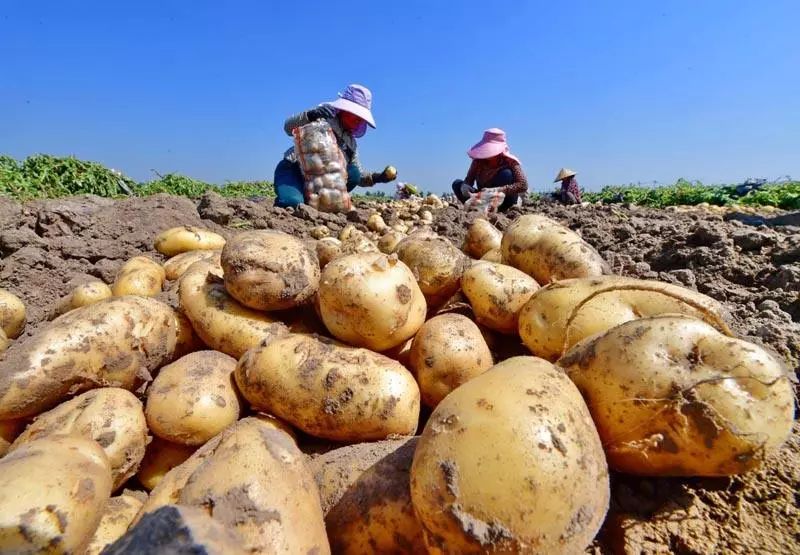
During their growth, potatoes require sufficient nutrients to support tuber formation and expansion. Base fertilizer should not only provide essential nutrients for potato growth but also improve soil structure and enhance its ability to retain water and fertilizer.
Optimal Base Fertilizer Formula for Potatoes
(I) Well-Decomposed Organic Fertilizer
This is the "workhorse" of base fertilizers. Fully decomposed farmyard manure, such as chicken manure, pig manure, cattle and sheep manure, etc., is suitable. It is recommended to apply 2,000-3,000 kg per mu (approximately 1,000-1,000 lb) of organic fertilizer per mu (approximately 1,000-2,000 lb) of organic fertilizer per mu (approximately 1,000-2,000 lb). Organic fertilizer increases soil organic matter content, loosens the soil, and continuously provides a variety of nutrients for the potatoes. However, it is important to ensure that the organic fertilizer is fully decomposed, otherwise it can burn roots and seedlings.
(II) Nitrogen-Phosphorus-Potassium Compound Fertilizer
Select a compound fertilizer with a nitrogen-phosphorus-potassium ratio of 10:18:20 and apply 40-50 kg per mu (approximately 1,000-2,000 lb) of fertilizer per mu (approximately 1,000-2,000 lb). Nitrogen promotes stem and leaf growth, phosphorus promotes root development and tuber formation, and potassium enhances plant resistance and promotes tuber expansion. These three elements work together to help potatoes grow stronger and healthier.
(3) Micronutrient Fertilizers
Potatoes also require micronutrients, especially boron and zinc. Apply 0.5-1 kg of borax and 1-2 kg of zinc sulfate per mu (approximately 1.5-2.0 kg) of borax and 1-2 kg of zinc sulfate per mu (approximately 1.5-2.0 kg) of zinc sulfate. Boron promotes pollen germination and pollen tube elongation, increasing fruit set; zinc participates in chlorophyll synthesis and photosynthesis, enhancing the plant's disease resistance.
Choosing High-Quality Fertilizers
Be sure to purchase high-quality fertilizers from reputable manufacturers. Avoid using inferior or uncomposted organic fertilizers, as these can affect potato growth and yield.
In addition to applying proper base fertilizer, it's also important to maintain good field management, such as intertillage, weeding, and pest and disease control. Only when these management measures are coordinated can potatoes achieve high yields and high quality.
For potato base fertilizer, a formula consisting of well-composted organic fertilizer, nitrogen, phosphorus, and potassium compound fertilizer, and micronutrient fertilizer, along with a scientific and rational application process, will ensure a good foundation for potato growth. Remember, if the base fertilizer is applied well, the potato yield will be high and the quality will not be bad.




